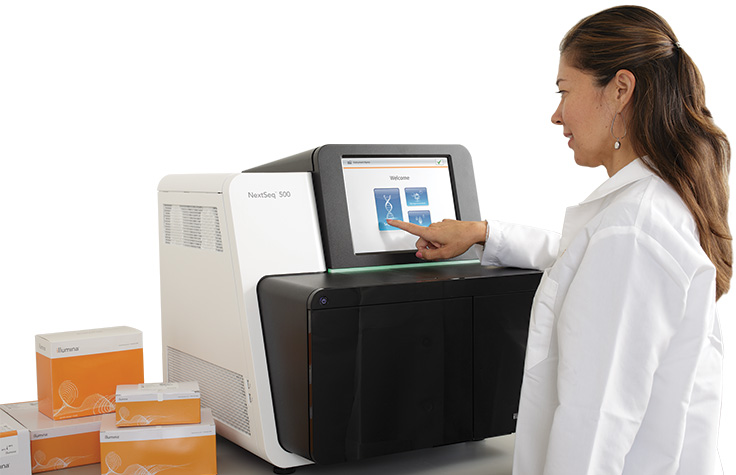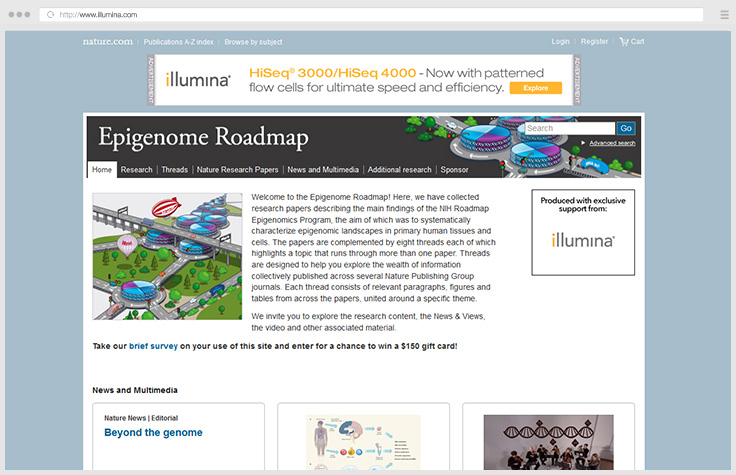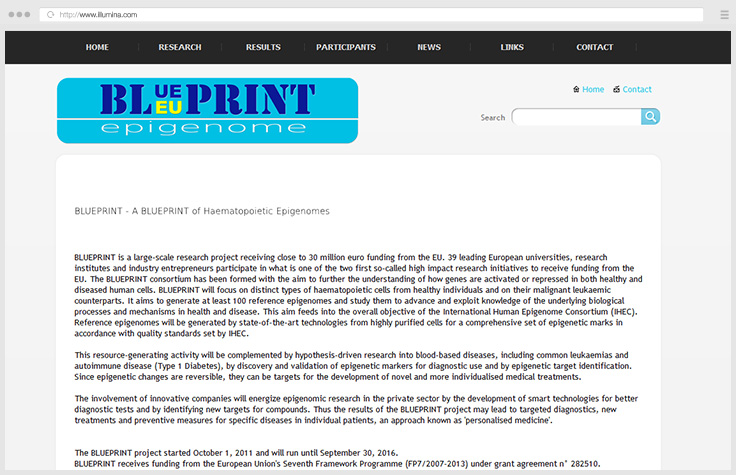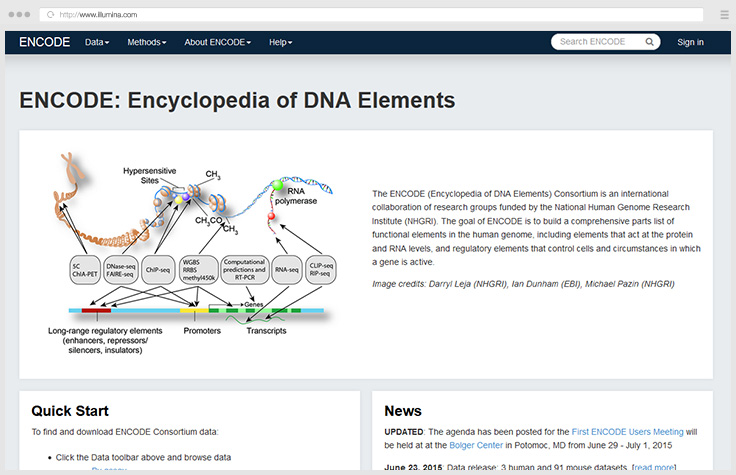Benefits of DNA-Protein Interaction Studies
Analysis of DNA-protein interactions provides researchers with insight into regulation events that are critical for many biological processes and disease states. This epigenetic information is complementary to DNA sequencing, genotyping, gene expression, and other forms of genomic analysis.

Analyzing DNA-Protein Interactions with Sequencing
By combining chromatin immunoprecipitation (ChIP) and massively parallel sequencing, ChIP-Seq accurately surveys interactions between protein, DNA, and RNA, enabling the interpretation of regulation events central to many biological processes and disease states. Use ChIP-Seq to identify transcription factor binding sites, track histone modifications across the genome, and narrow in on chromatin structure and function.

Cluster Density Tips
Optimal Cluster Density Best Practices
Watch Illumina scientists discuss how over- and underclustering can affect your sequencing data. Learn about common clustering issues and ways to prevent them.
View VideoHow to Achieve Consistent Cluster Density
Cluster density has a significant impact on run performance, specifically data quality and total output. Learn how to achieve more consistent cluster densities.
Read BulletinRelated Solutions
Detect DNA-Protein Interactions in Tumors

Altered transcription factor binding is a common epigenetic pattern in cancer. ChIP-Seq experiments provide researchers with a complete snapshot of DNA regions associated with a protein of interest. Learn more about cancer epigenetics.
Genome Wide Association Studies

Understanding the genetic architecture of complex diseases relies heavily on discovery and characterization of genetic variants associated with a particular disease. Learn more about GWAS for common variant discovery associated with disease.
Interested in receiving newsletters, case studies, and information on genomic analysis techniques? Enter your email address.
Additional Resources

DNA Sequencing Methods Review
A collection of library prep and sequencing methods, including ChIP-Seq, compiled from peer-reviewed publications.

Epigenome Roadmap
A collection of research papers that systematically characterize epigenomic landscapes in primary human tissues and cells.

Epigenome Blueprint
A consortium generating 100 reference epigenomes to understand gene activation and repression in healthy and diseased human cells.

ENCODE
The ENCODE Consortium built a comprehensive parts list of relevant proteins on the genome and set standards for generating and analyzing ChIP-Seq data.
